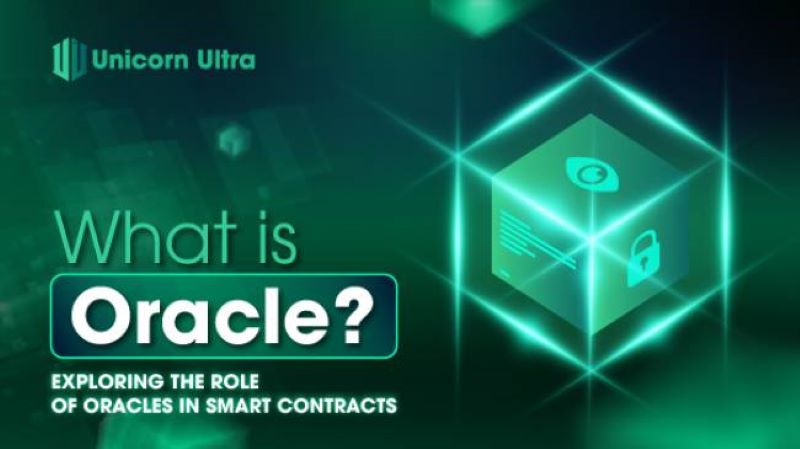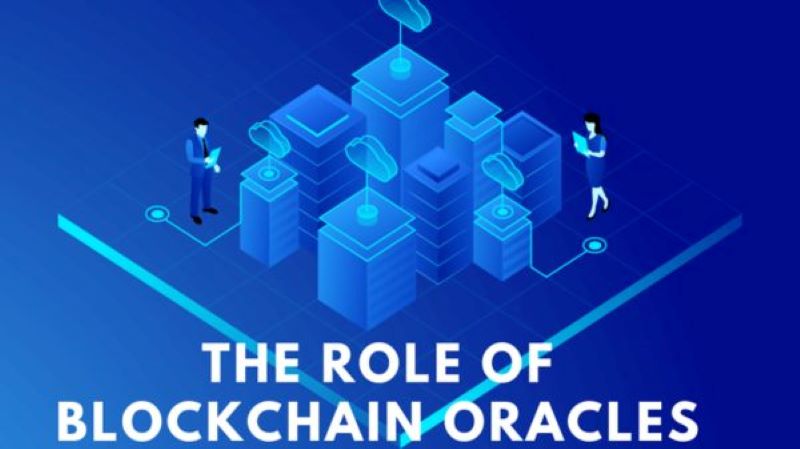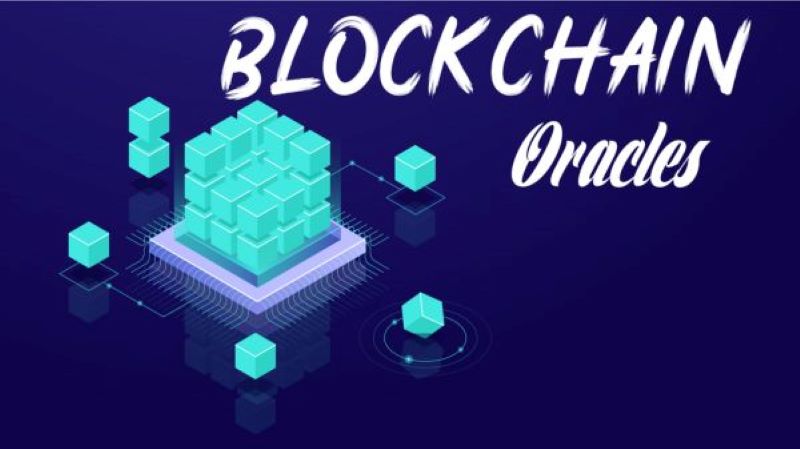Unveiling the mystery behind smart contracts’ ability to interact with the real world, oracles are the unsung heroes of blockchain technology. But what is an oracle, and how does it bridge the gap between the blockchain and the real world?
What is an Oracle?
Oracles serve as a crucial link between blockchain networks and the external world, enabling smart contracts to interact with real-world data and events. They securely retrieve and verify information from external sources, such as stock prices, weather data, or sports scores, and deliver it to the blockchain, triggering predefined actions within smart contracts. This capability significantly expands the potential applications of blockchain technology, allowing it to interact with and respond to real-world events in a trustless and decentralized manner.

Why do Smart Contracts need Oracles?
Smart contracts, while capable of autonomously executing predetermined actions, often rely on external data and events to fulfill their intended purpose. Without oracles, which act as a bridge between the blockchain and the external world, smart contracts would be isolated and unable to access the necessary information for their execution, severely limiting their potential applications.
What is an Oracle used for?
Oracles are essential for connecting blockchain applications with real-world data and events. They provide a secure and reliable way to fetch information from external sources and deliver it to smart contracts, enabling a wide range of use cases:
Data Feeds: Oracles deliver real-time data like market prices, weather conditions, and sports scores, allowing smart contracts to react to external events.
Decentralized Finance (DeFi): Oracles provide accurate price feeds, essential for determining asset values, exchange rates, and other critical financial parameters in DeFi applications like lending, stablecoin management, and decentralized exchanges.
Supply Chain and IoT: Oracles enable the integration of blockchain with supply chain systems and IoT devices, providing transparency and trust by delivering real-time data on product provenance, logistics, and quality checks.
The role of oracles in smart contracts
Oracles play a pivotal role in enhancing the capabilities of smart contracts, serving as a bridge between the blockchain’s isolated environment and the real world. Since smart contracts operate autonomously within the blockchain, they cannot directly access external information or events. Oracles address this limitation by securely retrieving and verifying real-world data, such as stock prices, weather conditions, or election results, and feeding it to the smart contract.

This enables smart contracts to execute based on real-world triggers and conditions, significantly expanding their potential applications. For instance, a smart contract for a parametric insurance policy could automatically trigger a payout based on weather data provided by an oracle, eliminating the need for manual claims processing. In decentralized finance (DeFi), oracles are indispensable for providing reliable price feeds, enabling various financial instruments like stablecoins and decentralized exchanges to function effectively.
By enabling smart contracts to interact with real-world data, oracles unlock a world of possibilities, bridging the gap between blockchain technology and real-world applications, making them more versatile, adaptable, and responsive to external events.
How does a Blockchain Oracle Service Work?
Blockchain oracle services act as intermediaries that facilitate the communication between smart contracts and external data sources. Here’s a simplified overview of how a blockchain oracle service typically works:
Data Acquisition: The oracle retrieves data from trusted sources, such as APIs, web scraping, or IoT devices. This data can include real-time market prices, weather updates, sports scores, or any other information required by the smart contract.
Data Verification: The oracle validates the acquired data to ensure its integrity and accuracy. This step is crucial to maintain the trust and reliability of the oracle service.
Data Transmission: Once the data is verified, the oracle transmits it to the smart contract on the blockchain, making it accessible for execution. The transmission can occur through various methods, such as API calls or specialized protocols.
What are the advantages and disadvantages of Oracle?
Advantages
Enhanced Smart Contract Functionality: Oracles significantly expand the capabilities of smart contracts by enabling them to access and respond to real-world data and events. This allows for the creation of more sophisticated and dynamic decentralized applications (DApps).
Increased Efficiency and Automation: Oracles automate the process of retrieving and verifying external data, reducing the need for manual intervention and streamlining various processes, such as supply chain management and insurance claims.
Improved Trust and Transparency: By providing reliable and verifiable data, oracles enhance the trust and transparency of blockchain-based applications. This is particularly important in areas like decentralized finance (DeFi), where accurate price feeds are essential.
Real-World Connectivity: Oracles bridge the gap between the blockchain and the physical world, enabling a wider range of use cases, such as prediction markets, decentralized identity verification, and supply chain traceability.
Disadvantages
Security Risks: Oracles introduce a potential point of failure in the blockchain system. If an oracle is compromised or provides inaccurate data, it can have serious consequences for the smart contracts relying on it.
Centralization Concerns: Some oracle solutions rely on centralized entities to provide data, which can raise concerns about potential manipulation or censorship.
Cost and Complexity: Implementing and maintaining oracle solutions can be expensive and complex, especially for smaller projects or those with limited resources.
Latency and Scalability: Retrieving and verifying external data can introduce latency and scalability challenges, particularly when dealing with large volumes of information or high-frequency data feeds.
How to use Oracle?
In Delegated Proof of Stake (DPoS), token holders vote for delegates who validate transactions and create blocks. These elected delegates, also known as witnesses or block producers, are responsible for maintaining the blockchain’s security and integrity. Voters, whose voting power is proportional to their holdings, play a crucial role in selecting trustworthy delegates and deciding on governance proposals.

Witnesses are incentivized to act honestly and maintain their reputation to attract votes and secure their position in block production, as they receive rewards for successful block verification. Delegates, on the other hand, focus on proposing improvements to the network, with their proposals being subject to user votes before implementation.
Validators, though not incentivized, are full nodes that ensure the validity of blocks created by witnesses, contributing to the overall security and trustworthiness of the network.
This democratic approach to consensus makes DPoS a more efficient, scalable, and accessible alternative to traditional Proof of Stake (PoS) systems.
Stay ahead of the curve with Cryptocurrency Bitcoin Price, your trusted source for the latest news and insights on blockchain technology and the ever-evolving world of cryptocurrencies.
